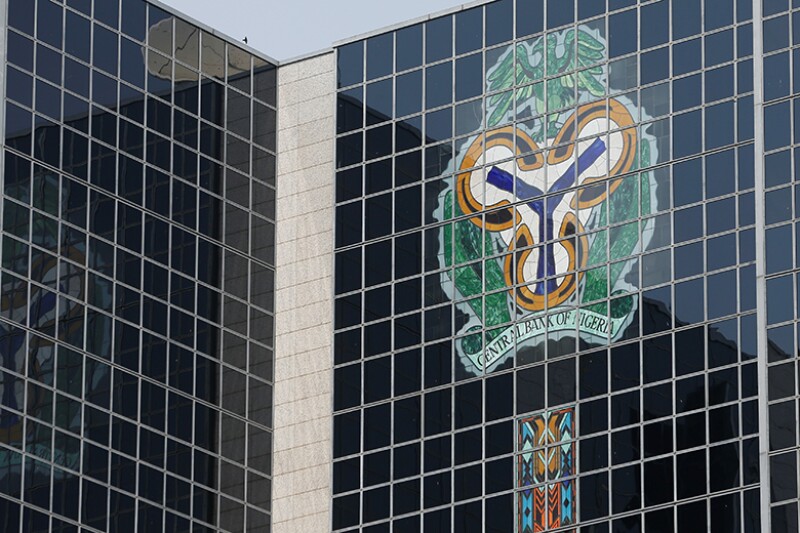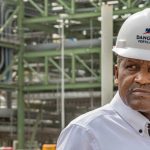The Central Bank of Nigeria (CBN) is the target of a lawsuit brought by the Socio-Economic Rights and Accountability Project (SERAP) “for the failure to account for and explain the whereabouts of the over N100 billion “dirty and bad notes” and “other large sum of cash awaiting examination” which are kept in various branches of the CBN.”
SERAP has requested that the Federal High Court in Lagos, Nigeria, to “direct and compel the CBN to explain the whereabouts of the over N100 billion dirty and bad notes kept in various branches of the Central Bank of Nigeria (CBN) since 2017” in the lawsuit with the file number FHC/L/MSC/441/2024, which was filed last week.
“Direct and compel the CBN to explain the whereabouts of the N7.2 billion meant for the construction of the CBN Dutse branch building in 2010 and the N4.8 billion meant for the renovation of the CBN Abeokuta branch in 2009 and to publish the names of contractors who collected the money,” has been another request made by SERAP to the court.
In its request, SERAP requests that the court “direct and compel the CBN to explain the whereabouts of the allegedly missing outstanding loan of N1.9 billion given to the government of Anambra state between 2015 and 2016 and the allegedly missing outstanding loan of N1.2 billion granted to the government of Enugu State in 2015.”
The lawsuit filed by SERAP makes the following claim: “It would serve the public interest and end the impunity of perpetrators to explain the whereabouts of the missing public funds, publish the names of those suspected to be responsible and ensure that they are brought to justice and the full recovery of any missing public funds.”
Additionally, SERAP contends that “these somber accusations by the Auditor-General of the Federation suggest grave violations of national and international anti-corruption obligations, the CBN Act, the provisions of the Nigerian Constitution, and the public trust.”
“These serious infractions also indicate a failure of CBN accountability more broadly and are directly linked to the institution’s ongoing noncompliance with its Act and anti-corruption standards,” states SERAP.
According to SERAP, “These allegations have seriously undermined the public’s confidence in the bank and the CBN’s ability to effectively discharge its statutory functions.” Transparency and accountability in CBN activities should be a priority.
Nigerians have a right to know where public funds are located, according to a portion of the lawsuit that SERAP’s attorneys, Kolawole Oluwadare and Mrs. Adelanke Aremo, filed on the organization’s behalf. If the requested reliefs were granted, Nigerians’ rights to compensation, restitution, and a guarantee against repetition would advance.
“Paragraph 708 of the Financial Regulations 2009 provides that, ‘on no account should payment be made for services not yet performed or for goods not yet supplied.
“Section 35(2) of the Public Procurement Act 2007 provides that, ‘once a mobilization fee has been paid to any supplier or contractor, no further payment shall be made to the supplier or contractor without an interim performance certificate.
“Section 16(6) of the Public Procurement Act states that ‘all bidders shall possess the necessary professional and technical qualifications to carry out particular procurements; the financial capacity and adequate personnel to perform the obligations of the procurement contracts.
“Section 16(6) of the Public Procurement Act states that ‘all bidders shall possess the necessary professional and technical qualifications to carry out particular procurements; the financial capacity and adequate personnel to perform the obligations of the procurement contracts.
“SERAP notes that Section 15(5) of the Nigerian Constitution requires public institutions to abolish all corrupt practices and abuse of power.” Section 13 of the Constitution imposes clear responsibility on the CBN to conform to, observe and apply the provisions of Chapter 2 of the constitution.
“Paragraph 3112(ii) of the Financial Regulations 2009 provides that, ‘Where a public officer fails to account for government revenue, such officer shall be surcharged for the full amount involved and such officer shall be handled over to either the Economic and Financial Crimes Commission (EFCC) or the Independent Corrupt Practices and Other Related Offences Commission (ICPC).
“Nigeria has made legally binding commitments under the UN Convention against Corruption to ensure accountability in the management of public resources. Articles 5 and 9 of the UN Convention against Corruption also impose legal obligations on the CBN to ensure proper management of public affairs and public funds.
“The Nigerian Constitution, Freedom of Information Act, and the country’s anti-corruption and human rights obligations rest on the principle that citizens should have access to information regarding their public institutions’ activities.
“According to the recently published 2020 audited report by the Auditor General of the Federation (AGF), the Central Bank of Nigeria (CBN) has since 2017 been keeping over N100 billion [N100,672,999,000.00] ‘dirty and bad notes’, and other large sum of cash awaiting examination in various branches of the CBN.
“The Auditor-General fears that the ‘dirty and bad notes’ initially planned to be destroyed may have been ‘be diverted and re-injected into the economy.
“The CBN in August 2010 also reportedly budgeted N7.2 billion [N7,286,500,476.76] for the construction of Dutse branch building. The Dutse branch was due to be completed in November 2012 but the contractors have failed to complete the project.
“The Auditor General believes there’s a chance that public monies were misused. He desires that the funds be completely recovered and sent to the Treasury.
There is no set date for the lawsuit hearing yet.




